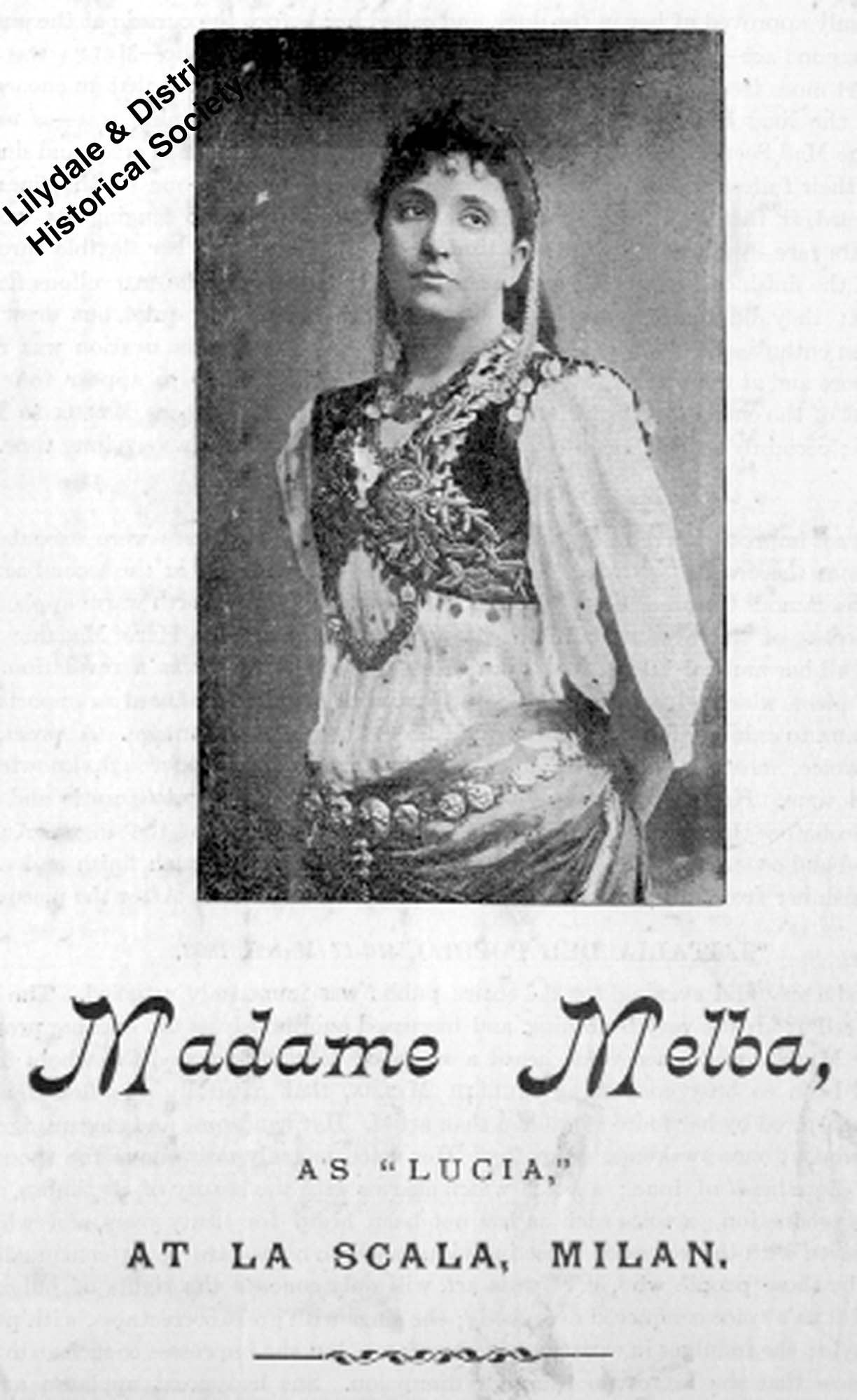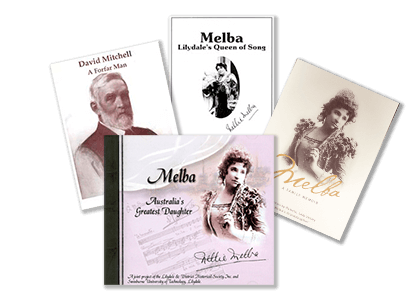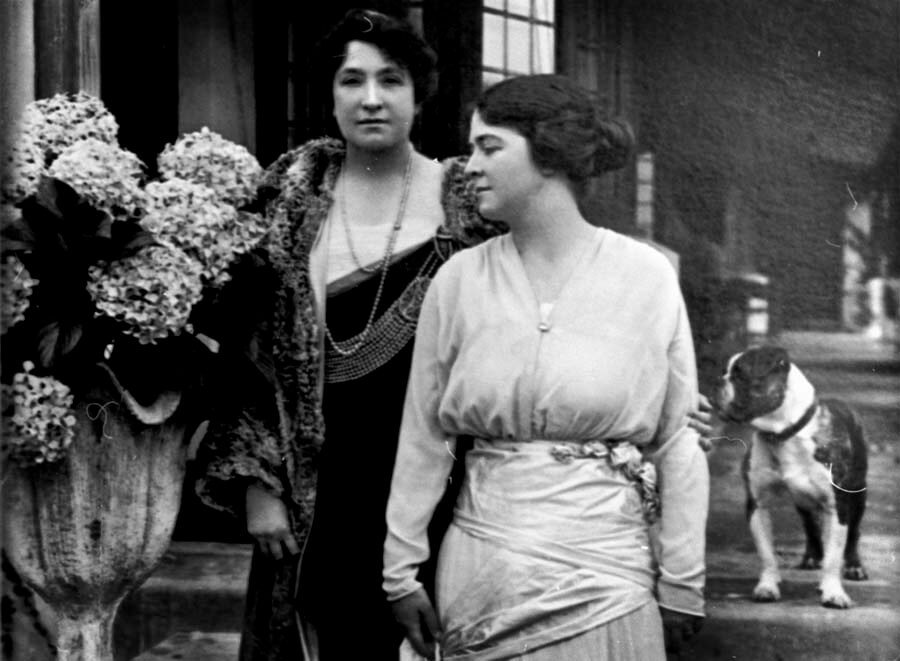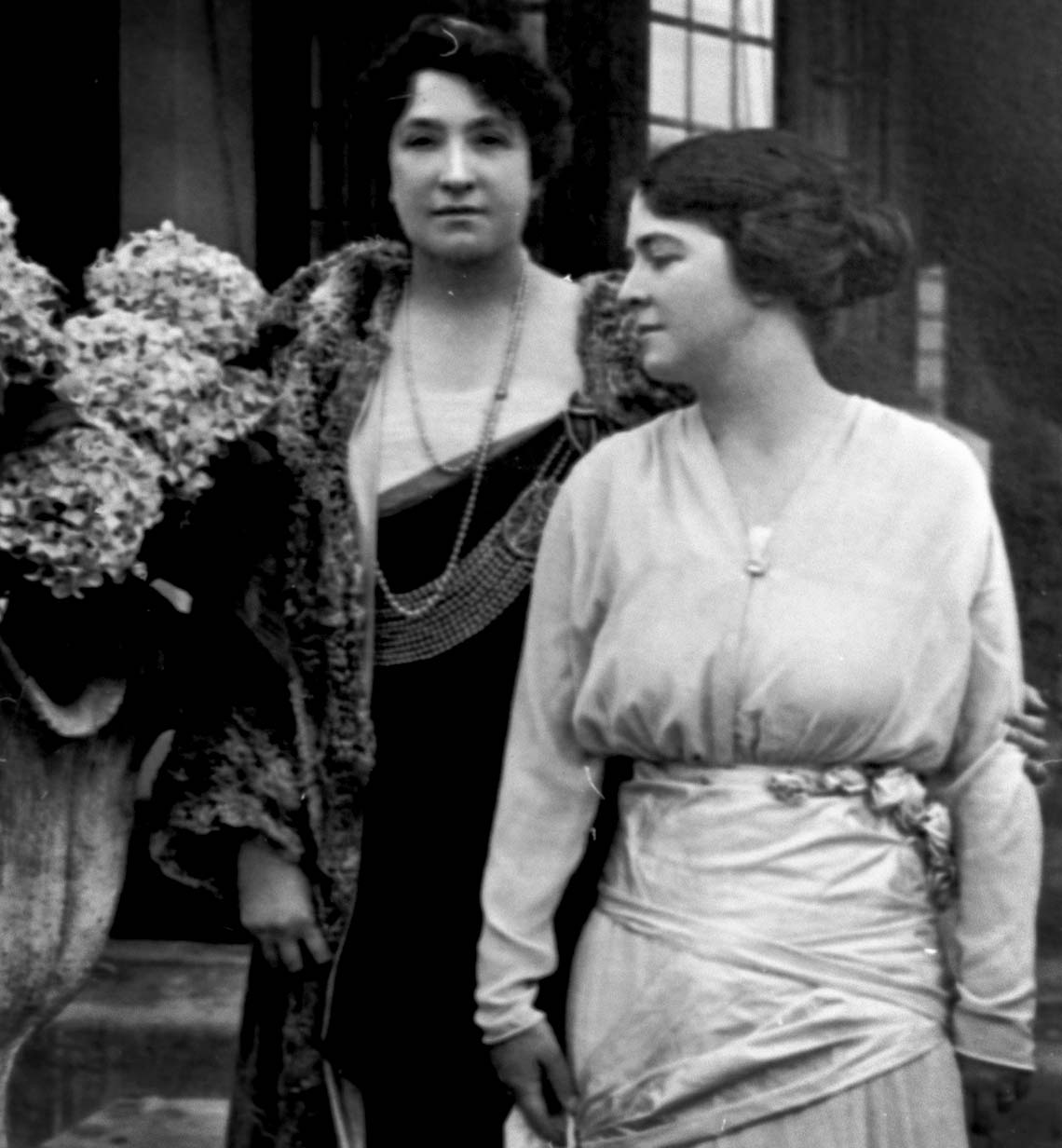
Opera Houses | La Scala
A Time of Terror.
To be a true opera star Melba had to conquer the audience of the La Scala Opera House in Milan. Her La Scala debut was scheduled for March 1893.
January and February had been spent visiting the regional areas of England and Scotland where Melba had won over more taciturn audiences.

But the audience of La Scala was a very different matter. Melba described her La Scala debut as a time of terror.
“I had arrived at Milan trembling with excitement at the thought of singing in the great Opera House of La Scala, which was (as I well knew) one of the most critical audiences in the world. But very soon I was trembling with another sort of excitement, for immediately I entered my hotel, I was handed a batch of letters in a strange spidery handwriting, which as soon as I opened them proved to be from anonymous enemies, all threatening me with various sorts of disaster unless I left Milan immediately.” (1)
Melba chose to ignore them but more arrived each day – claiming poison would be put in her food; a lift would break if she got in it and another a stiletto (knife) was waiting if she went out at night.
“Every mouthful of food I took seemed likely to poison me. I would not go even downstairs, let alone out of doors.” (2) Melba wanted to leave but her secretary Louie Mason convinced her to stay.
Terrified, Melba walked on stage to sing Lucia di Lammermoor on March 16 1893.
“How I ever sang my initial recitatif I do not know to this day. It was a terrible ordeal. But it was also a very brief one. For before I had finished, an immense “Brava! Brava!” echoed all over the theatre. The rest of the performance, though I say it myself, was a crescendo of triumph, and I am told after the Mad Scene the applause went on for ten minutes.” (3)
For Melba, the ordeal gave new meaning to staying to face the music.

Writing after Melba’s success, the Pall Mall Gazette reported on Melba’s ordeal.
“To say an Italian audience is difficult is to say little – it is hostile, aggressive and rude. A debut under such circumstances is an ordeal out of which but a few escape unhurt, and to undergo it requires as much nerve and talent.”
There were about 30 letters ranging from practical jokes and advice to threats and these were referred to the police. (4)

What the critics said of Melba’s debut
Alod Noseda of Italy’s Corriere della Sera wrote on March 17 1893:
‘Madame Melba won a great battle yesterday. Many are the stars who have fallen on the stage of La Scala, and how much greater was the fame which preceded them, how much more were we led to expect from them! Yesterday evening’s success counted as one of the most gratifying to the amour propre of an artist, and, let us frankly say, was flattering to the reputation of our public, who discerned, with the fine taste of a connoisseur, the exceptional qualities of the singer, who left little to be desired even as an actress.’
He referred to Melba’s ‘marvellous facility of production’, ‘seduction of timbre for spontaneity of vocalization’, the ‘finished art of modulation’ and the ‘pureness of intonation’. (5)


To mark the occasion of her debut, season, before leaving Milan, Melba was presented with a special certificate.

Melba’s success at La Scala brought forth other engagements in Italy – at Florence, Turin and Genoa where she was supported by some of the soloists, the chorus and orchestra of the historic La Scala opera house. (6)

Her tour ended with a series of concerts at French provincial towns including Marseille and Lyons before arriving back at Paris. (7)
Working with the composers
At the time, Italy had many great musicians and composers including Puccini and Verdi both of whom Melba met and worked with on their various operas.
Puccini
Melba described Puccini as an extremely simple man who was peasant of genius.
“He very rarely talked, except in short staccato sentences, while he sat shyly on the edge of the chair. The only time he ever really ‘got out of himself’ was when he was sitting at the piano, either playing some extracts of his operas or improvising ‘a pastime of which he was extraordinarily fond’. It was with Puccini himself that I had the priceless advantage of studying Boheme.” (8)
Melba spent six weeks at Lucca and most days Puccini called at her hotel and after lunch marked her copy of the score writing how the opera should be sung.

Guiseppi Verdi
Melba also met Guiseppi Verdi. One night after singing Rigoletto Melba learned he was in the audience and was waiting outside her dressing room to meet her.
She described their first meeting:
“He bowed, slowly, almost sternly. It was like a tree trying to bend. That was the impression he gave one, of some gnarled, wonderful, old tree. There was an impenetrable reserve about him which made one’s conversation with him slightly stilted. And yet, he had bright eyes, like a boy’s and eager restless hands.” (9)
Melba asked if as a favour she could sing his opera Otello to him. He agreed and the next day Melba sang to him. Recalling that day:
“I shall always remember that lesson – the long, cool room, with the sun streaming through the windows and Verdi sitting down at the piano, and playing and playing until we had finished the whole opera. He was an inspiring master. He made one feel his phrases as he himself felt them, and he gave each phrase an added loveliness.”
Verdi had promised to hear Melba sing Otello but not long after the lesson, sadly he died. (10)

Melba returned to La Scala for a second season in May 1894 and received a great welcome. (11)
I Pagliacci at Covent Garden
After a couple of concerts in Paris, Melba returned to Covent Garden where she and George stayed at the Savoy Hotel. Melba started her new season at Covent Garden in Lohengrin on May 15 and followed on May 19, her birthday, with I Pagliacci.
Melba had met Ruggiero Leoncavallo while in Italy. She read the score of I Pagliacci and promised to take it to Covent Garden and if possible perform it during the season. (12)
This opera, was one of King George’s favourites as he saw it 10 times during the season. (13)
Critics praised Melba noting improvements in her various performances during the season.
As Elsa in Lohengrin Mme. Melba ‘was in excellent voice, and sang the balcony song in exquisite style, with far more warmth of expression than usual.'(14)

On her role as Nedda in I Pagliacci the Times critic wrote:
“Mme Melba’s singing of the music allotted to Nedda, with its one really fine scena (encored last night), is altogether admirable, sad throughout the first act her performance leaves little to be desired, whether in the more serious parts or in those which require her to adopt a lighter style. In the opening of the comedy in the second act she is for some time alone on the inner stage; here the part requires a considerable degree of pantomimic skill, and the singer’s recent improvement as an actress stood her in good stead. (15)
The opera going audience turned out in force for Jean de Reszke and Melba in Romeo et Juliette on Tuesday, June 18:
“Mme Melba repeated the part of Juliet with all possible success. Here nothing but improvement is to be noticed, since her recent advance as an actress is accompanied by an accession of vocal beauty.” (16)
Melba also appeared in Masgcani’s I Rantzau as Luisa and while she was declared first rate, the critics panned the opera claiming a ‘poverty of composition’. (17)
With the Covent Garden season over, Melba toured Scandinavia before boarding a ship at Le Havre and crossing the Atlantic for her American debut at Metropolitan Opera House in Lucia di Lammermoor on December 4, 1893.
References
(1) N. Melba, Melodies and Memories, Thornton Butterworth Ltd, London, 1925. pg 110.
(2) N. Melba, Op. cit., pg 111.
(3) N. Melba, Op. cit., pg113.
(4) The Pall Mall Gazette, London, undated Melba’s scrapbook.
(5) A. Murphy, Melba: A Biography, Doubleday, Page & Co, New York, 1909, pg 78.
(6) A. Murphy, op. cit., pg 76.
(7) P. Vestey, Melba: A Family Memoir, Pamela Vestey, Coldstream, Melbourne 2000, pg 81.
(8) N. Melba, op cit., pg 115.
(9) N. Melba, op. cit., pg116.
(10) N. Melba, op. cit., pg115-116.
(11) A. Murphy, op. cit. pg 100.
(12) P. Vestey, op. cit., pg 80.
(13) N. Melba, op. cit., pg 117.
(14) The Times, London, May 16, 1893 pg 10.
(15) The Times, London, May 20, pg 8.
(16) The Times, London, June 22 1893 pg 10.
(17) The Times, London, July 10, 1893 page 8.
Online Shop
Purchase books, CDs, photographs and other merchandise



Share Your Information with the Museum!
Email us your info (and images) to:
[email protected]
Our home is the Old Lilydale Court House:
61 Castella Street, Lilydale 3140
Hours of opening:
By appointment only:
Fridays 1 to 4pm and Saturdays to Mondays 11am to 4pm.
Sundays are preferred.
Closed Public Holidays

Nellie Melba Museum
Contact Details:
Sue Thompson: 0475 219 884
Email: [email protected]
Share your info with us:
[email protected]
Our home is the Old Lilydale Court House:
61 Castella Street, Lilydale 3140
Hours of opening:
By Appointment only:
Fridays 1 to 4pm and Saturdays to Mondays 11am to 4pm.
Sundays are preferred.
Closed Public Holidays

Nellie Melba Museum
Contact Details:
Sue Thompson: 0475 219 884
[email protected]
Nellie Melba Museum
Contact Details:
Sue Thompson: 0475 219 884
[email protected]
Our home is the Old Lilydale Court House:
61 Castella Street, Lilydale 3140
Hours of opening:
By appointment only:
Fridays 1 to 4pm and Saturdays to Mondays 11am to 4pm.
Sundays are preferred.
Closed Public Holidays
Share Your Information
with Nellie Melba Museum!
Sue Thompson: 0475 219 884
[email protected]

